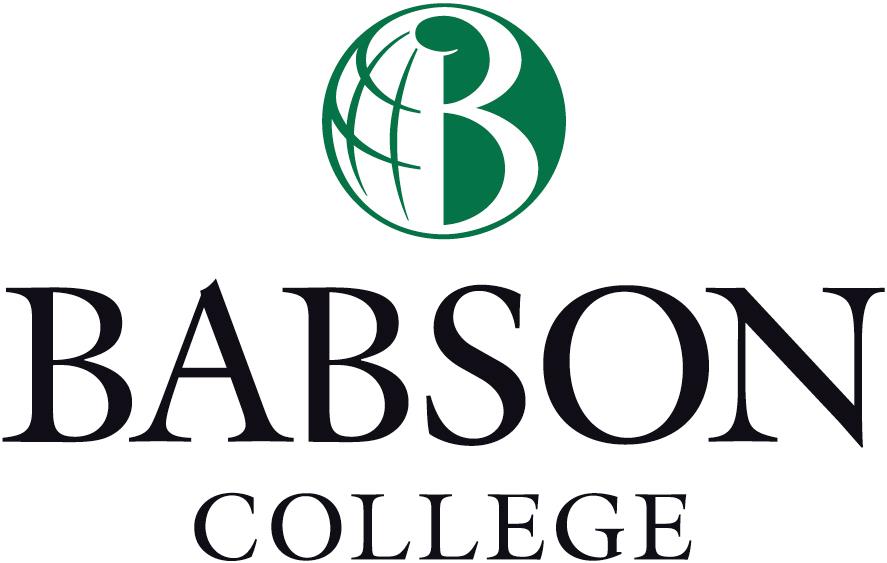
Being part of the Babson entrepreneurship family brings to bear an incredible network of people, resources, and ideas for your venture.
Name of Program: Babson College – Arthur M. Blank Center for Entrepreneurship
Location: Boston, MA
Website: www.babson.edu/Academics/centers/blank-center/Pages/home.aspx
Executive Director: Debi Kleiman
This interview is part of our Entrepreneurial Program Spotlight Series featuring College and University Entrepreneurial Programs from around the world. We hope these spotlights will assist the aspiring student entrepreneur should they consider attending an entrepreneurial program at the collegiate level .
Following is an interview with Babson’s Debi Kleiman, the Executive Director of the school’s Center for Entrepreneurship. Babson is generally recognized as having one of the top entrepreneurial programs in the United States. In fact, most rankings list the school as having the number one program in the country.
In four sentences or less, tell us about your school’s entrepreneurial program and its objectives?
At Babson, we believe that entrepreneurship can be a powerful force within organizations of all types and sizes, in established businesses as well as new ventures. In any industry, in any position, it takes Entrepreneurial Thought & Action® to solve problems and make an impact. Our objective is to teach all our students to think and act like entrepreneurial leaders.
We were the first to understand that thinking and acting entrepreneurially is more than just an inclination. It’s a mindset, it can be taught, and we do it better than anyone.
Why is your program unique? Please describe the benefits of participation in your program to the student / potential entrepreneur.
Babson is unique because our curricular and co-curricular programs for entrepreneurship are so tightly integrated. We teach entrepreneurship in all our classes and we also provide multiple opportunities to practice it in a low risk, high support environment. The John E. and Alice L. Butler Venture Accelerator at Babson provides an ecosystem where participants live and breathe entrepreneurship.
Through our diverse programs, students and alumni explore opportunities and move their business concepts forward, taking advantage of free co-working space, peer-mentoring programs, expert advisers and EIRs, topical workshops, over 70 events, venture competitions, a seed fund, and other valuable resources.
Our entrepreneurial community offers unparalleled support throughout each stage of the business’ development, helping entrepreneurs stay focused as they turn an idea into a reality.
What is the most difficult part about working with students and potential entrepreneurs interested in launching startups during or following a college program?
Babson provides customized support in a focused environment for students and potential entrepreneurs who are moving through the startup process: explore, pursue, launch and grow. We have hundreds of students working on startups at any given time, so our challenge lies in scaling all the resources we offer so that each venture is getting what they need, when they need it. Babson is always trying to bring in new resources and enroll new people in our ecosystem to help the teams, and we are doing it at a crazy pace!
What Entrepreneurial Resources are Available in Your City?
What do you enjoy the most; what do you find most appealing about working with students interested in entrepreneurialism?
Entrepreneurship is central to everything at Babson. We are able to provide a focused environment with tons of support from faculty and advisors, as well as the open lab spaces to collaborate, allowing our entrepreneurs to acquire the skills needed to move their business opportunity forward. Our students are really action oriented, and they all take classes in entrepreneurship from their very first day at Babson. So they are really attuned to looking for opportunities and they think about solving problems in very unique ways. How they think about creating value in the world is really exciting and inspiring.
6 Startup Lessons Learned from Previous Mistakes
Tell us about your success stories; Which are the most interesting startup companies to have been initiated / began during attendance in your program? Why, in your opinion, have they been successful?
Recent Babson alums have created some really interesting businesses that have experienced a lot of success. We don’t specialize in any industry or type of product. Our students create food, fashion, consumer products, tech, mobile, IoT, medical devices, and other products as well as some service businesses — it really runs the whole spectrum.
NatureBox is a great example, because it was created in a way that’s so core to what we teach. Try something, take an action, learn from it and do something more. The Co-founder and CEO of NatureBox, Gautam Gupta ’07 literally just put up a website about healthy snacking over a weekend and saw the reaction to it. They had 100 orders before they even had product to sell. He and co-founder Ken Chen ’06 moved to build it up from there, adding the pieces on and developing partnerships to make it a successful eCommerce business. Now they are moving into retail with big chains like Target and they make all their own snacks.
Alexandaer Debelov ’10, a Forbes 30 under 30 entrepreneur, created his company Virool in his dorm room at Babson. He utilized all the resources at Babson to create the world’s first viral video ad network. His approach is classically Babson- moving fast, trying different approaches, and recognizing opportunity. After graduating, he has continued to grow the company into an ad tech powerhouse.
Healthy snack bar 88 Acres, co-founded by Robert Dalton MBA ’14, credits the Babson experience for the company’s success. Babson “offered an easy way for us to build out our network and interact with potential customers. When investors see we’re part of the Accelerator at the Number One school for entrepreneurship, it mitigates risk. It adds trust and validity.” Now, the 88 Acres production facility is housed in an old Boston warehouse, which has been renovated into an incubator kitchen and food-centric work space with private and public funding.
Incubator vs Accelerator, which is best for your business?
How much funding have startups from your program raised in recent years?
From 2005-2015, Babson graduates started 1169 businesses of all kinds. Babson-educated entrepreneurs create 24 percent more jobs than the national average. We don’t track funding, as we don’t see it as the key to judge a venture’s success. Many of our entrepreneurs bootstrap or find creative ways to fund the start of their businesses without taking funding.
What are the three most important factors students interested in startups and entrepreneurialism should consider when contemplating attending a program such as yours?
Our entrepreneurial community offers unparalleled support throughout each stage of developing an organization. It’s easy to stay focused and take action when an entrepreneur has access to resources that enhance our extremely entrepreneurial environment. Entrepreneurs have found that being surrounded by like-minded ambitious students is contagious, which helps them spend less time thinking and more time doing.
- Advice From Expert Entrepreneurs
As part of the accelerator program, entrepreneurs gain special access to guest entrepreneurs and focused workshops, giving an added advantage with just-in-time industry information and insights. Babson’s Entrepreneurs in Residence have included:- Daymond John, FUBU founder and “Shark Tank” host
- Andrew Zimmern, “Bizarre Foods” host
- Gail Simmons, “Top Chef” judge
- Cross-Campus Collaboration
It’s all about who you know, and partnerships with Babson’s Center for Women’s Entrepreneurial Leadership (CWEL) and the Lewis Institute for social innovation—including Food Sol, focuses on food entrepreneurs—give entrepreneurs access to additional connections that they can use to further progress the business. - Your Entrepreneurship Family
The accelerator is the only place where constant, intentional collaboration between undergraduates, graduates, and alumni occurs through one combined program. And, like any good family, this group makes entrepreneurs feel accountable with weekly reminder emails keeping them committed to the program—and taking the next step.
If a student is interested in attending your program, what should they do? 
We offer both undergraduate and graduate degrees in entrepreneurship. Contact our admissions office.
What else would you like to share?
We want to put the power of entrepreneurship as a force for economic and social value creation in as many hands in the world as we can. Being part of the Babson entrepreneurship family brings to bear an incredible network of people, resources, and ideas for your venture.
Would you like us to include your school in the Entrepreneurial Program Spotlight? If so, let us know via a comment below.











